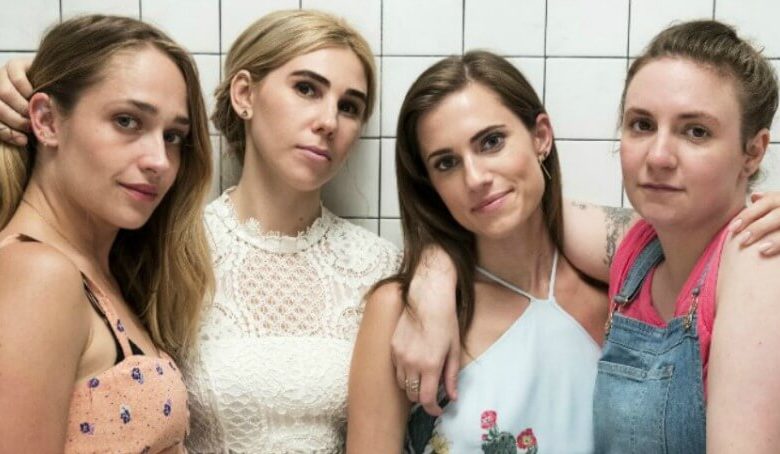Why Conservatives Should Give Dunham’s ‘Girls’ a Fresh Look

Lena Dunham is a favorite punching bag for many of us on the right.
She embodies a number of the things that repel us about liberals: She’s a loud-mouthed supporter of Planned Parenthood; she was all in for Hillary; she loves to portray women as victims; she wears a p*$$y hat.
And she’s vulgar. Proudly, unabashedly, and shamelessly vulgar.
She became a Hollywood darling for her HBO series, “Girls,” which charted the lives of four friends living out their post-college years in New York City. Dunham created the show, wrote most of the episodes herself, and portrayed the show’s protagonist, Hannah Horvath.
“Girls” recently ended its run after six seasons. That prompted me to go back and binge-watch it in its entirety. To be clear, I am not the intended audience. I’m a Generation Xer who is simultaneously amused and bemused by millennials. But I’m one of seven daughters and mother to three girls of my own, so the dynamics of female relationships intrigue me.
The Selfie Generation
“Girls” was supposedly to millennials what “Sex and the City” was to my generation. Not so much. The travails of Carrie Bradshaw and her crew were certainly fun to watch – and the fashions were often to die for – but there wasn’t a whole lot for the average women to relate to in her own life. Most of us would’ve locked down Mr. Big in the first season and forgone all the feminism-fueled heartache that ensued.
FAST FACT: The “Girls” season finale drew 741,000 viewers, a fraction of what HBO smash “Game of Thrones” draws for a given installment.
“Sex and the City” was hailed for its “sisters are doin’ it for themselves” themes. The thread that held it all together was the idea that these four women didn’t need men in their lives, that they were a family unto themselves.
Except they weren’t.
True happiness wasn’t achieved through the sisterhood, it was found when all four had settled down with the men of their dreams.
“Girls” didn’t offer such happy endings, save for one character, and that’s down to Dunham’s much more realistic depiction of young women embracing their inner narcissists as they begrudgingly march toward adulthood. Dunham’s version of the sisterhood was gritty.
The four main characters, Hannah, Marnie, Shoshanna and Jessa, displayed varying degrees of loyalty to the bonds of their friendship. Mostly, though, they repeatedly pursued their own self-interests, often ruthlessly at the expense of one another. One memorable scene from the final season showed Hannah and Jessa arguing which one was the sociopath and which was the psychopath.
RELATED: Schumer, Dunham Ignore Their Own SJW Advice
While not 100 percent grounded in reality – Dunham had a rather privileged upbringing in New York City, after all, so her experience as an average person is virtually nil – “Girls” nevertheless was truer to the complexities of young adulthood and female friendships. It was also heavy-handed in its depictions of loneliness, sexual exploration, and desperation.
Like comics who feel they must go “blue” in their standup routines to show the extreme edginess of their humor, Dunham often unnecessarily veered toward vulgarity, obscenity, and profanity to demonstrate the extremeness of the characters’ emotions. And, of course, she herself is infamous for the amount of flesh she repeatedly showed as Hannah.
From Liberal to … Conservative?
In its most recent and final season, however, “Girls” became surprisingly conservative. Avowed feminist Hannah became pregnant as the result of a fling and rather easily made the decision to keep her baby. Some of the characters were downright old fashioned in their reactions to Hannah saying she wasn’t going to tell the father about the baby.
When she could have zigged toward unabashed progressivism, Dunham zagged. Hannah did not seek out an abortion; Dunham instead chose to show how an unplanned pregnancy could be a good thing for a young woman. Like “Sex and the City,” where the four friends found contentment in traditional committed relationships, Hannah found a fulfillment and centeredness in motherhood that had previously eluded her.
Happily Ever After
The one character who did end up with the fairy tale ending, Shoshanna, did so by setting herself free from what had become the shackles of her friendships with the other three. These young ladies were not setting each other up for success, but rather hindering each other from achieving it.
Is this feminism circa 2017, or does it speak more to the pathos of Dunham?
And what might this all reveal about Dunham herself? Well, she’s no closet conservative, that’s for sure. There’s no expectation that she’ll tone down her pro-abortion rhetoric in the wake of her pro-life storyline. She is a good storyteller, though, and as is revealed through her scripts, she is also self-aware enough to know that many facets of the feminism she espouses in real life are ultimately bad for women.
Teri Christoph is co-founder of Smart Girl Politics, an online community for conservative women. This article originally appeared on Christoph’s site.
Photo Credit: Mark Schafer/HBO

Interesting…! I personally would think it’s rather like Joss Whedon’s duality. He’s a big Lefty…but his artistic integrity is such that he can’t HELP but make good Conservative art. Seems Dunham has the same issue.
BTW, isn’t Shoshanna played by David Mamet’s daughter?